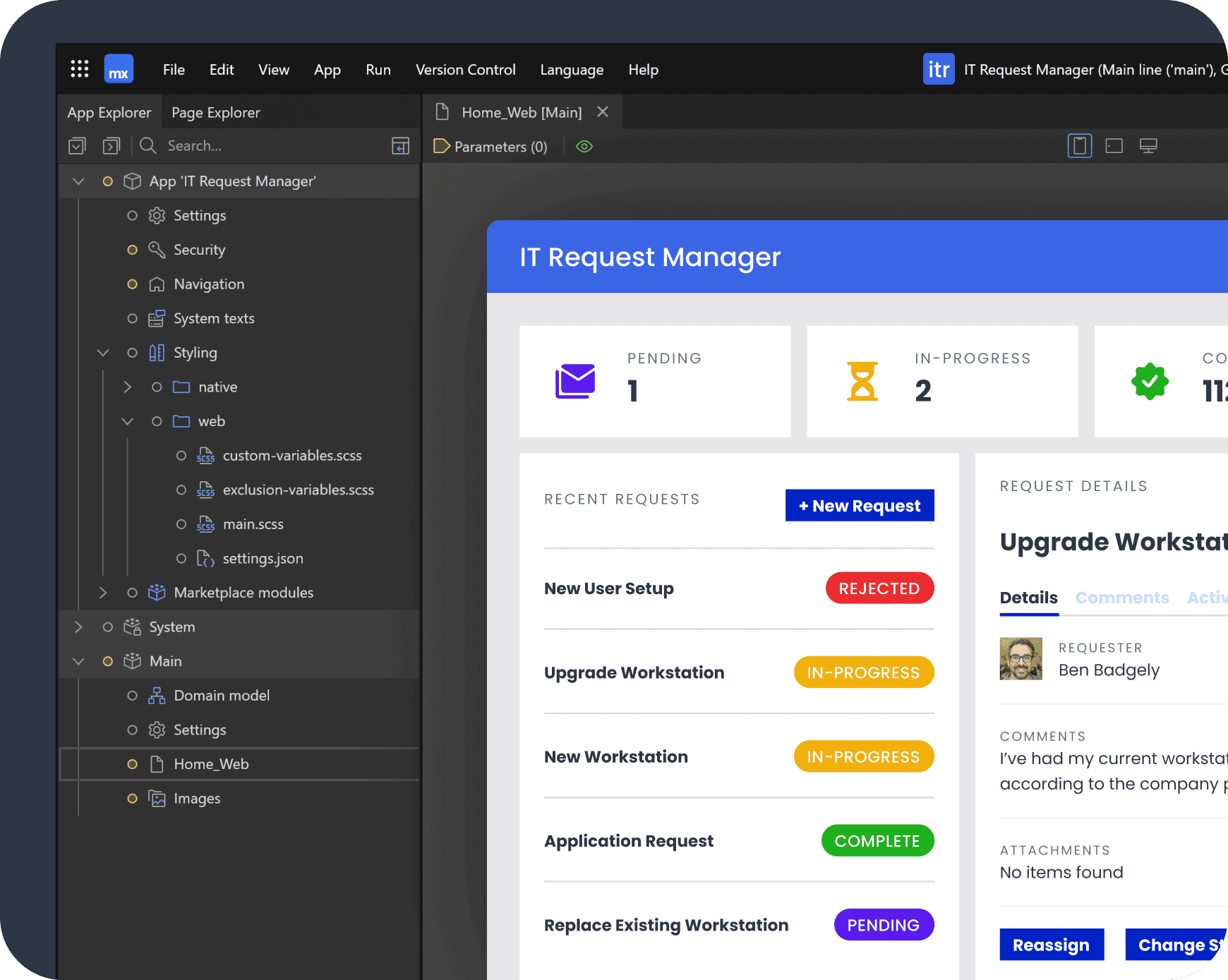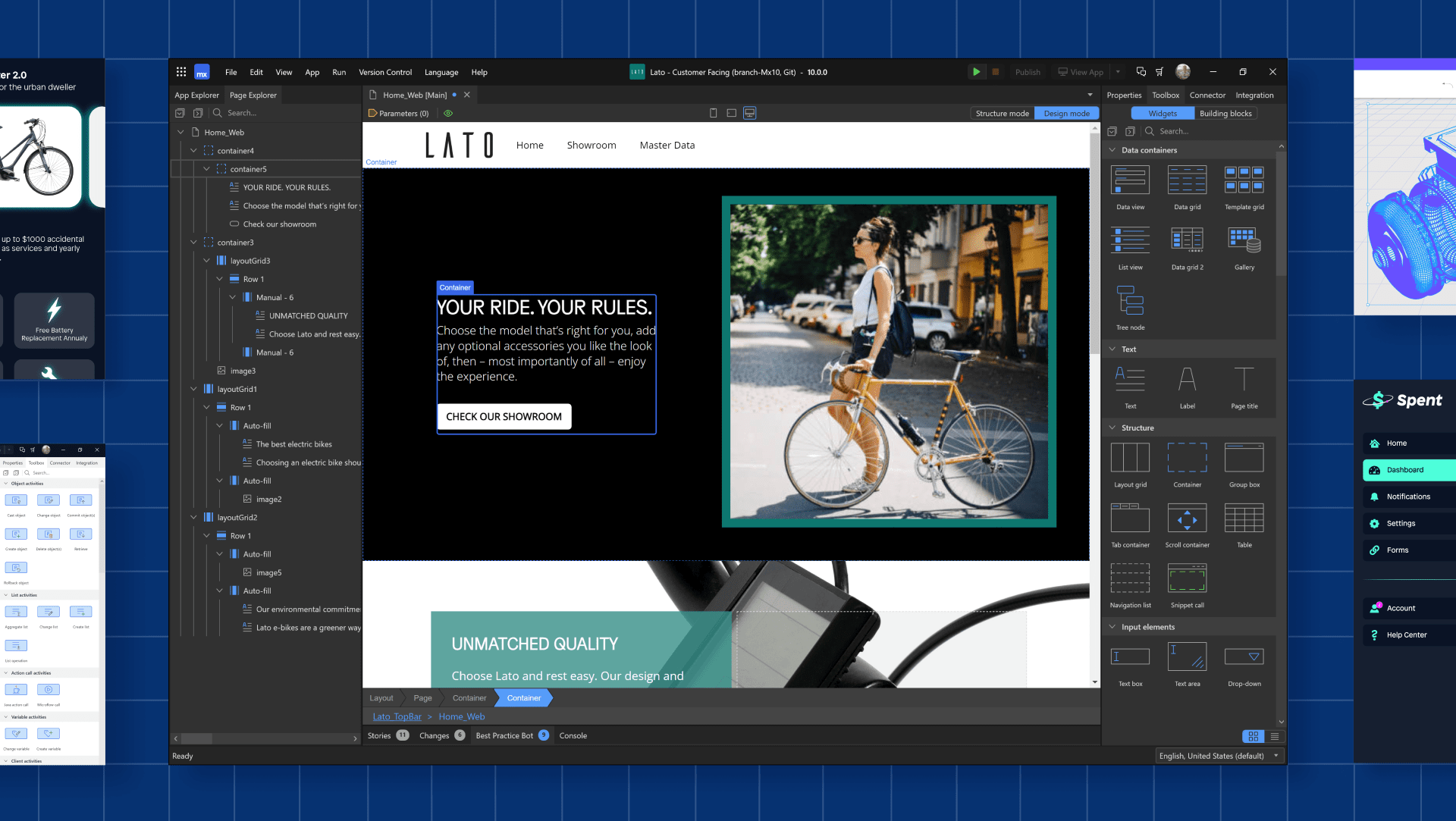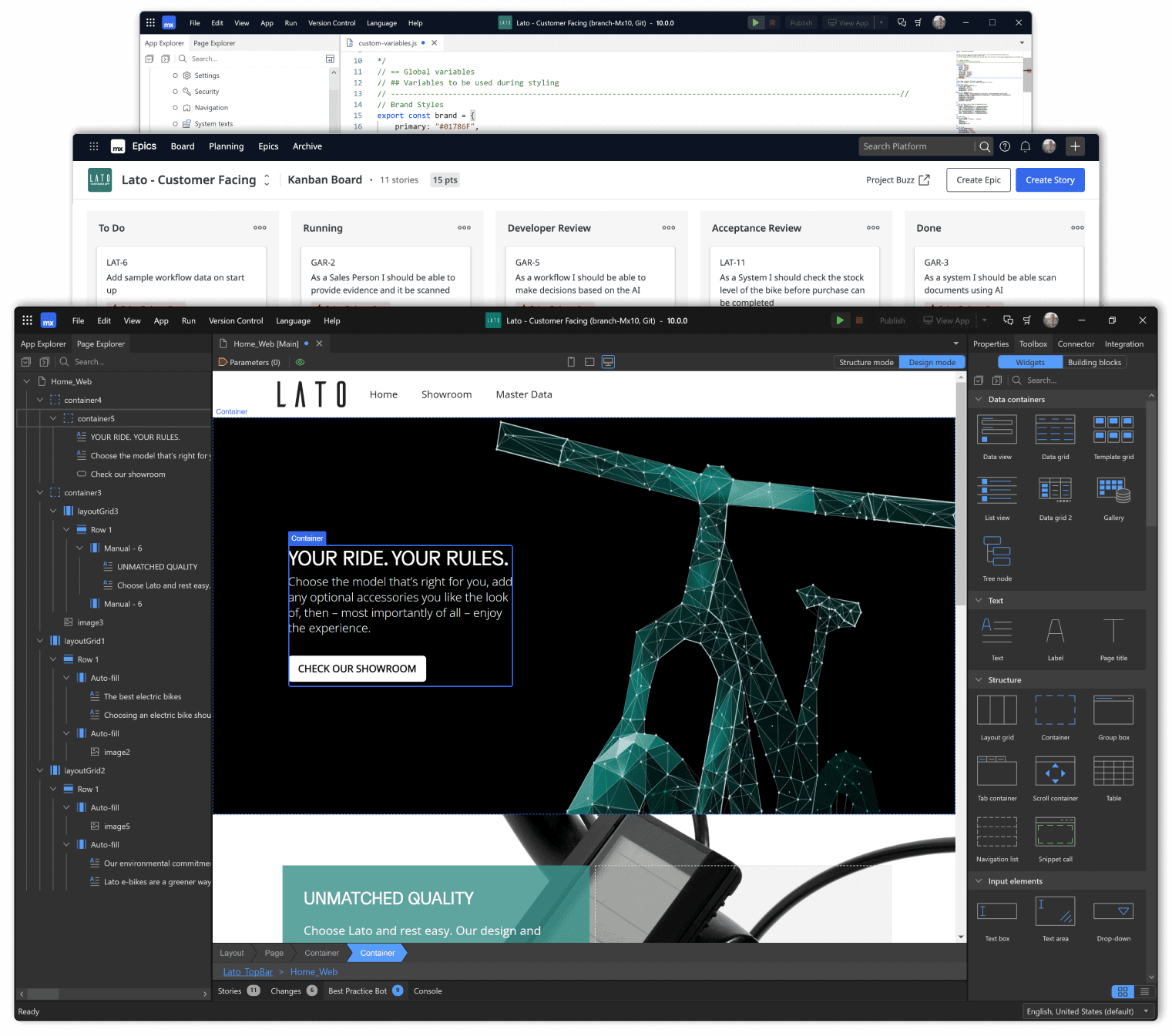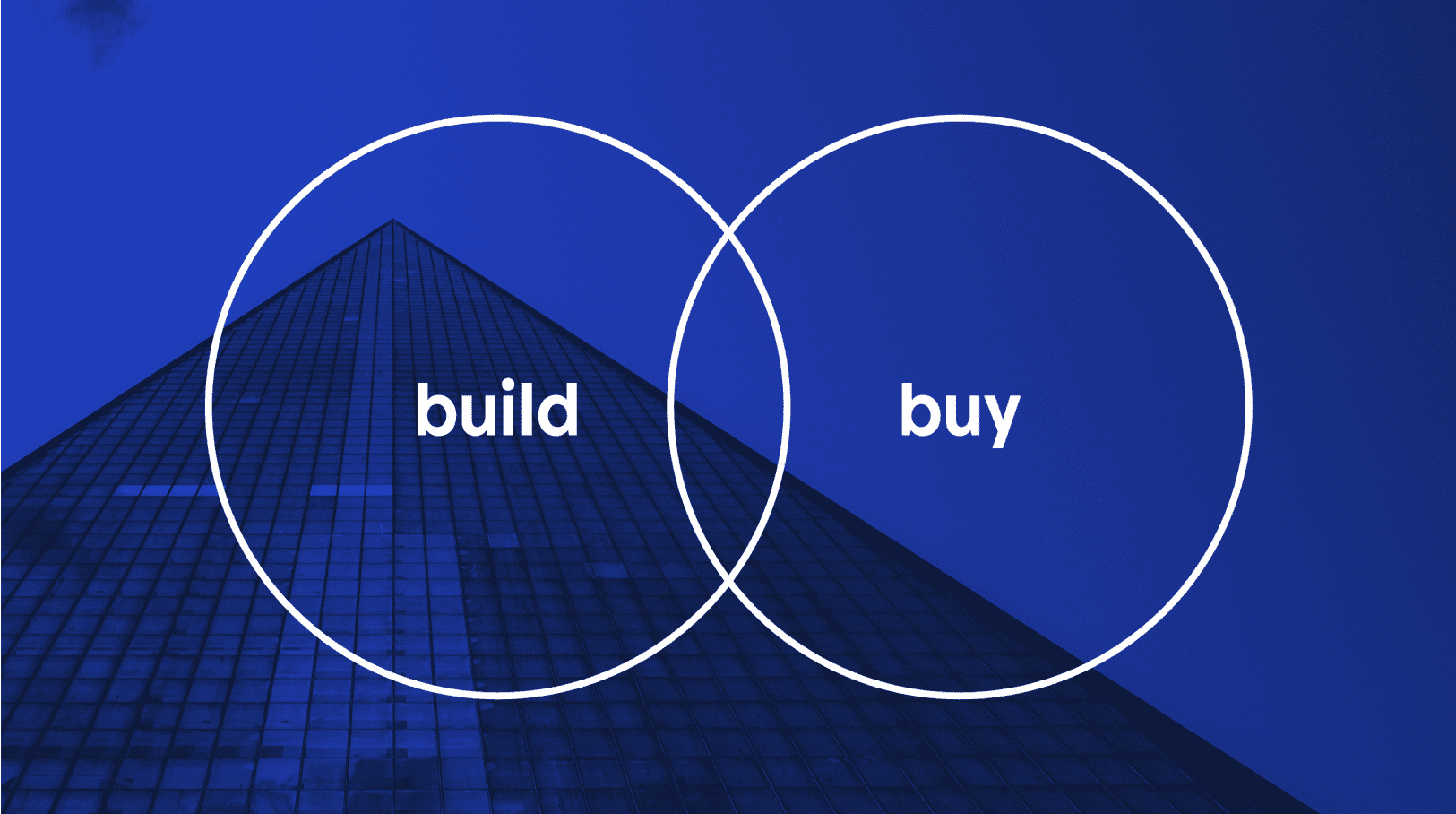
Enterprise Application Development
Mendix is the only low-code platform designed for today‘s complex software development challenges
Try Mendix for freeTurn ideas into outcomes
Building custom business applications is a must for enterprises looking to:
- improve customer engagement and experiences
- increase collaboration and efficiency
- migrate to the cloud
- future-proof business processes
But the demand for these apps expands beyond IT’s ability to deliver. Resources are stretched, and outdated delivery methods hinder growth.
The why of increasing application velocity is obvious, but the how is less so. It seems like there are too many barriers on the path toward better software development.

The barriers of enterprise app development
-
Legacy systems and apps
Legacy systems are difficult to maintain and incompatible with new technologies and changes in business processes, resulting in high costs and technical debt.
Modernize legacy systems -
Talent and resource shortages
The developer shortage has made it difficult to find and retain talent. Without the right resources, enterprises can’t deliver apps fast enough to stay competitive.
Understand the dev shortage -
Challenges adapting to Agile
Agile offers more visibility into the app development lifecycle, but traditional approaches lead to production delays, poor app quality, and higher costs.
Transition to Agile -
Business-IT communication gaps
Clear communication is a must when building apps, but siloed departments and evolving requirements often result in apps that fall short of the mark.
Improve communication
Low-code accelerates app development
Low-code is 90% faster than traditional development, making it easier for enterprises to build game-changing applications.
Low-code development incorporates automation and abstraction to streamline development processes for users of all skill levels. It also gives professional developers more opportunities to innovate enterprise-wide solutions.
A low-code application platform (LCAP) helps enterprises:
- increase developer productivity with visual user interfaces, reusable components, platform extensibility, and workflow editors.
- ensure app quality and consistency with automated testing.
- develop an app and deliver seamless user experiences across mobile, desktop, and tablet.
- deliver maintainable, easy-to-scale solutions on cloud-native architecture.
- incorporate an Agile way of working and a DevOps culture.

Start building enterprise apps with Mendix
Mendix helps IT overcome resource and systems challenges to accelerate every step of the application development lifecycle, with features and capabilities including:
-

Rapid app development
Visual, model-driven development environments and Agile methodology accelerate the app development lifecycle. Tools and services standard for DevOps are available out of the box or are fully automated in our platform.
View RAD features -

Openness and extensibility
Mendix is open and extensible with reusable components and the ability to incorporate custom code as needed. Platform APIs make it easy to connect disparate systems and integrate data and logic from any source or service.
Extend your apps -

Security and governance
Mendix offers the most trusted low-code governance guardrails and controls. Use our built-in tools for secure, compliant, and effective use of the platform, or develop your own governance framework.
See governance with Mendix -

Cloud-native by default
Mendix apps are containerized, portable, and resilient by default. Deploy apps in one click to public, private, and hybrid clouds or on-premises systems.
Explore multi-cloud freedom -

Built-in collaboration tools
Mendix supports cross-departmental communication with built-in feedback management, project management, and other tools to streamline collaboration.
Collaborate without barriers -

Mendix Marketplace
Streamline development with our reusable components. Our Marketplace features pre-built widgets, templates, and modules created by Mendix, our partners, and our community.
Browse the App Marketplace
The proof is in the platform
Innovate with a leader in low-code
Featured Analyst Reports
-
 Download Gartner Report
Download Gartner ReportA leader in the 2025 Gartner® Magic Quadrant™ for Enterprise Low-Code Application Platforms
-
 Download Forrester Report
Download Forrester ReportLeader in the Forrester Wave™: Low-Code Development Platforms For Professional Developers, Q2 2023
Related resources

5 Digital Transformation Trends for Growth in 2023
Read about the 5 digital transformation trends you're likely to see take hold in 2023.

What is No-Code vs. Low-Code?
What are the differences between low-code and no-code development platforms? We explain low-code vs. no-code in this article.

Technology Trends for 2025: AI, Governance, The Future of Development, and More
Several Mendix experts give their thoughts on the trends that will define technology in the year 2025.

Build vs. Buy: Weigh the Pros and Cons
When is it best to build vs. buy software? We break down the pros and cons and introduce a third option that offers the best of both worlds.

3 Low-Code Legacy Application Modernization Strategies
If you're running outdated, lagging legacy systems, it's time for an upgrade. Here's how low-code can support legacy application modernization.

5 Benefits of Low-Code Application Development
What are the biggest benefits of low-code application development? Learn about the features of low code development and the top 5 benefits here.
Frequently Asked Questions
-
What is application development?
Application development refers to the process of creating web or mobile software solutions for a specific need. With enterprise application development the process involves creating apps for business purposes, such as automating workflows or modernizing legacy systems. Ideating, planning, designing, building, testing, integrating, and deploying are all part of the application development lifecycle.
-
What is an application development platform?
An application development platform provides the tools and technology necessary to design, develop, implement, and maintain web and mobile applications. These platforms provide development environments that make it possible to build custom business applications in house.
-
What is low-code application development?
Low-code application development is an approach that requires little or no coding expertise. Instead of complex programming languages, low-code platforms feature intuitive development toolkits and visual interfaces that people of all coding skill levels use to develop custom applications.
-
What are the challenges of enterprise application development?
Enterprise application development is often seen as a challenge because many businesses have a lack of resources, inefficient or broken lifecycle management processes, problems with legacy systems, departmental silos, and/or communication issues. Enterprises also have evolving business needs, a high volume of data, limited resources, and complex integration requirements that can prolong the development process and delay deployment.
Low-code application development platforms alleviate these challenges. Features of low-code platforms include visual modeling, project management tools, pre-built templates and widgets, and other tools that enable rapid development and deployment. Low-code takes a visual, user-friendly approach that people of all coding skill levels can understand.


